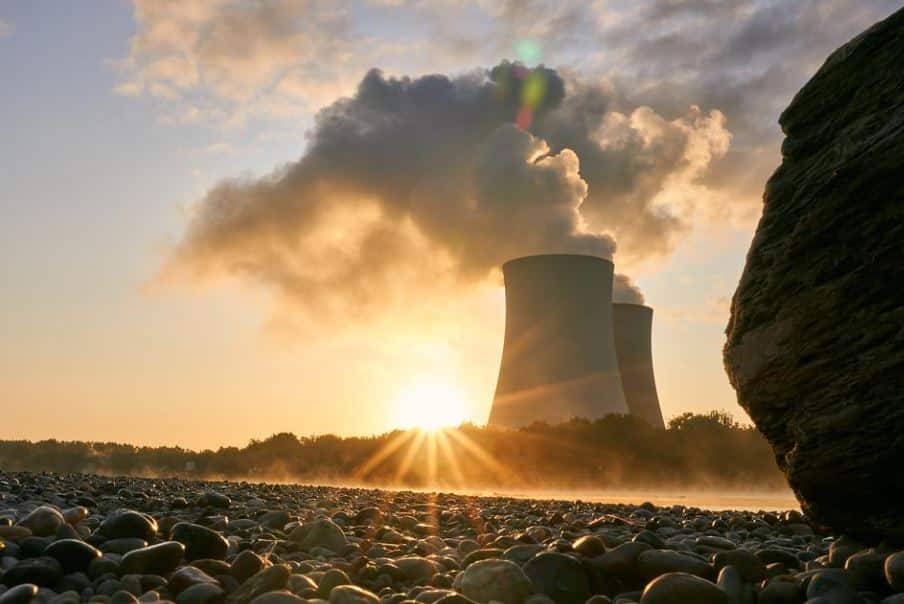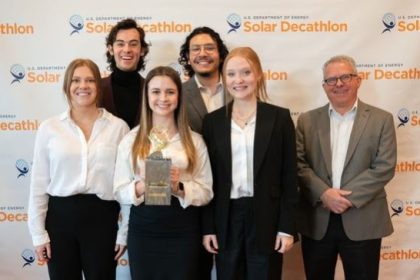Nuclear Regulatory Commission Urged to Amend Security Rule Language

BERKELEY, Calif. — The American Nuclear Society and The Breakthrough Institute are pushing the Nuclear Regulatory Commission to alter and clarify its regulatory language governing the physical protection of nuclear plants and materials.
The charge is being led by The Breakthrough Institute’s Senior Policy Advisor for Nuclear Energy Innovation Rani Franovich and ANS President Steve Nesbit, who submitted a joint letter last week to NRC commissioners about their concerns with proposed changes to the commission’s code of federal regulations.
The NRC is proposing to change a section of the code dictating the standards for licensing advanced reactors to specify that the program requires a “high assurance” of protection against design basis threats of radiological sabotage. In their letter, Franovich and Nesbit contend that the proposed change exceeds what is necessary for the NRC’s approval and makes it more difficult to license and deploy advanced nuclear reactors.
Franovich and Nesbit assert that the code should instead require “reasonable assurance of adequate protection” to prevent the repetition of a high assurance standard for nuclear security in new regulations. The proposal would perpetuate confusion and the misapplication of what a “high assurance of protection” for physical security entails, amounting to regulatory overreach beyond the NRC’s legal mandate for nuclear security.
The existing language on the rule contains at least six references to a “high assurance” of protection for advanced reactors, all of which Franovich and Nesbit said should be amended in their letter to the NRC.
“This simple change would translate to more efficient NRC licensing and oversight practices for not only the next generation of advanced nuclear reactors, but also the currently operating fleet,” Franovich said. “Prior commission direction establishes the basis for the rule change. Now is the perfect time, and this is the perfect opportunity for the NRC to correct the problem.”
Further, the nuclear experts maintain that the proposed language violates the Plain Writing Act of 2010, flies in the face of the commission’s previous direction and overlooks the NRC’s vision and strategy report on non-light water reactor mission readiness. In that report, the NRC states that its mission is to certify “adequate protection of public health and safety” through licensing and regulating the civilian use of nuclear material.
Franovich and Nesbit said the NRC’s proposal drifts beyond the regulatory basis for the limited-scope rule change and violates the commission’s regulation principles. The nuclear experts said the NRC should insert the more appropriate “reasonable assurance of adequate protection” language into its existing rules as well because the “high assurance” standard imposes undue burdens on new nuclear developers and disincentivizes the deployment of new nuclear technologies.
“The American Nuclear Society supports NRC’s actions to modernize and update its regulations — including security regulations — to address advanced reactors in a risk-informed, performance-based manner,” Nesbit said in a written statement. “While doing so, ANS urges NRC to conform potentially misleading wording in [part 73 of Title 10 of the Code of Federal Regulations] security regulation to the well-established regulatory standard of ‘reasonable assurance of adequate protection.’”
Securely deploying nuclear energy to the electrical grid is an issue with profound implications for climate change mitigation, Franovich and Nesbit said in the letter. Whenever issues arise about the safety of nuclear power plant deployment, it begets a long process of oversight and remediation on the NRC’s part.
Internal documents released last week by the NRC showed a senior structural engineer for the commission had previously raised concerns about the earthquake resistance of an approved small modular nuclear reactor design. Shortly after the commission granted standard approval to the NuScale small modular nuclear reactor design in September 2020, NRC structural engineer John Ma issued a differing professional opinion about the safety of the design during earthquakes.
In his opinion, Ma argued that the building intended to enclose the reactor units and spent fuel pool was not guaranteed to withstand the largest earthquake considered in the design without collapsing. The dissent was dismissed after a review by an ad hoc panel and NRC management in April 2021, but that decision was partially reversed in February 2022 after an appeal by Ma.
NRC Executive Director for Operations Daniel Dorman directed commission staff to review the technical approach of the building’s design and evaluate its seismic design standards, although the NRC did not revoke NuScale’s design approval. On Friday, the Union of Concerned Scientists published a statement in support of Ma and his design safety concerns.
“The seismic design standards for structures with critical safety functions at nuclear power plants should be stronger, not weaker, than those for conventional buildings,” UCS Director of Nuclear Power Safety Edwin Lyman said in a written statement. “NuScale’s business case is based on its assertion that it is a safer nuclear reactor — now it’s time to prove it by addressing these safety concerns.”
An NRC spokesperson told The Well News that in regard to the Breakthrough Institute/ANS letter, the commission spoke to the issue back in 2016, stating that “the concept of ‘high assurance’ of adequate protection found in our security regulations is equivalent to ‘reasonable assurance’ when it comes to determining what level of regulation is appropriate.”
The staff has been following that direction since then, the spokesperson said, and the groups’ letter will be considered as a comment in the relevant rulemaking and fully addressed there.
In regard to the NuScale matter, the NRC spokesperson said Dan Dorman, executive director for operations at the NRC, has directed the staff to better document its existing analysis – there is no additional analysis being done. The staff’s response to Dorman’s tasking is expected in the next few days.
Reece can be reached at [email protected] and at https://twitter.com/ReeceNWrites
This article has been updated to include the comments and responses of a Nuclear Regulatory Commission spokesperson.























